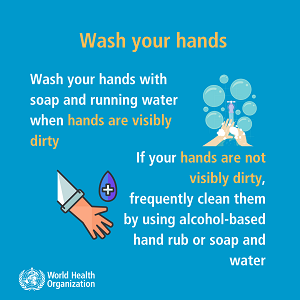Now that the letter has been signed and delivered
On the 29th of March 2017 Theresa May triggered Article 50, which means the process for the departure of the UK from the European Union has begun.
The implications of this will not be known for some time and for now, our focus will be on the trading the UK will be having with countries throughout the world over the next two years.
We are an island race and we rely heavily on foreign trade to prosper – whether that be importing or exporting – and because of that, now would be a great time to assess the risks with trading Internationally.
So, what are the main risks with International Trade?
We can categorise the risks under a few broad headings.
Political – A government’s policies can have a major impact on which countries it deals with. Imposed restrictions on imports or increased tariffs on imported goods could mean a quid pro quo response from countries around the world. President Trump may well choose to use higher tariffs on imports to protect their farming industry and their clothing manufacturers. Clearly this would affect UK exporters in these sectors.
If states or countries are politically unstable, prone to changes in government or civil wars, have currency fluctuations, high inflation or are bedevilled with a serious lack of infrastructure, selling to or buying from would be a great risk both financially and economically.
Some countries align themselves with others and embargos introduced could prevent any trade taking place.
China offers free loans or free land to some businesses which of course means lower costs of operation or manufacture for those businesses, making their products more competitively priced.
We have a Balance of Payments deficit – we import more than we export – so our government’s policies in dealing with imported goods such as oil – this is heavily taxed under the guise of petrol and diesel – could be inflationary meaning the cost of living over here would increase.
Cultural – Each country has its own culture, religious beliefs and behavioural tendencies and therefore if a company is going trade internationally, it needs to be fully aware of how to behave and apply the appropriate business etiquette in the countries it will trade with. Failure to do so could mean an opportunity is lost.
Financial / Payment – Terms of trade are paramount in International trading. Financially a business needs to ensure as best as possible it will be paid and on time. Open account trading could be very risky and credit insurance may well be a necessity. Using Letters of Credit (LC) is much less risky than open account trading, but mistakes in the LC could lead to negotiations with the buyer or seller. If the bank doesn’t accept the LC then it would be discrepant and could lead to a loss-making trade. Securing credit insurance on companies in certain countries may be difficult and even if you are covered, if there is a problem or dispute with the goods you have supplied, you are not covered. Worse still, your goods could be thousands of miles away racking up storage costs and open to pilferage.
Exchange rate – In times when exchange rates are volatile, pricing new export business or buying from foreign suppliers could be difficult and a budgeted profit could turn into a loss. Forward exchange contracts are available and whilst Sterling has dropped in value recently and is a benefit to exporters, companies can get caught out and lose a large amount of money if the rate goes against you.
Legal – Exporters need to comply with the rules and regulations of the country receiving the goods or services. Each country has its own laws and if broken could result in serious financial loss. Packaging labels may require additional information printed on them, hygiene regulations could be different and certain products will require export licences.
Care needs to be taken when buying goods from foreign suppliers and if a UK business chooses to use a foreign supplier to manufacture technical or ground-breaking products, intellectual property is at risk of theft. You may need to instigate a manufacturing under licence agreement with the producer or patent your product.
Opportunity risk – A company could spend a lot of time, money and resources on an export campaign for its products, only to find the markets targeted do not come on stream for a whole variety of reasons.
We know there are risks in International Trade, but we also know there are huge opportunities to grasp. Running a business is a risk in itself and under most circumstances, risks can be mitigated against using common sense and careful thought and we inhabit a global economy in which goods and services are bought and sold by businesses throughout the world everyday.
With the right product or service, UK businesses could enjoy the following benefits with International Trade
Sales Growth – By entering new markets, the growth rate for a company could be exponential. There are many businesses who have become huge corporations through International Trade and they have reaped the rewards of their growth with great profits.
Improved Brand recognition – For a business who deals with companies all over the world, there is an opportunity to improve its brand awareness and trust in its products.
Better processes – Learning from other cultures who employ different methods, systems and processes can have a beneficial impact on a company. This can make businesses more effective, efficient, competitive and profitable.
Network growth – Trading internationally will increase your current base of contacts with new suppliers and manufacturers.











